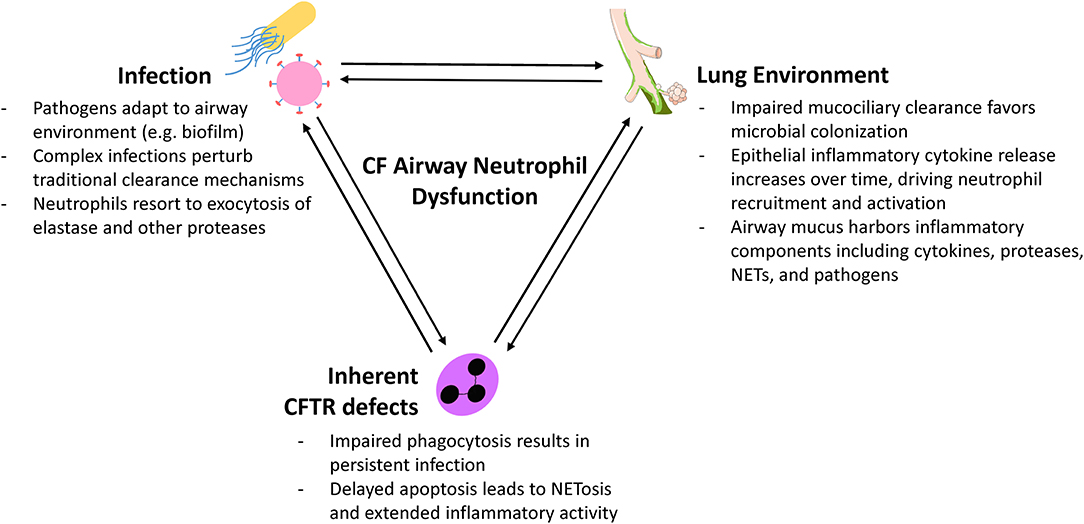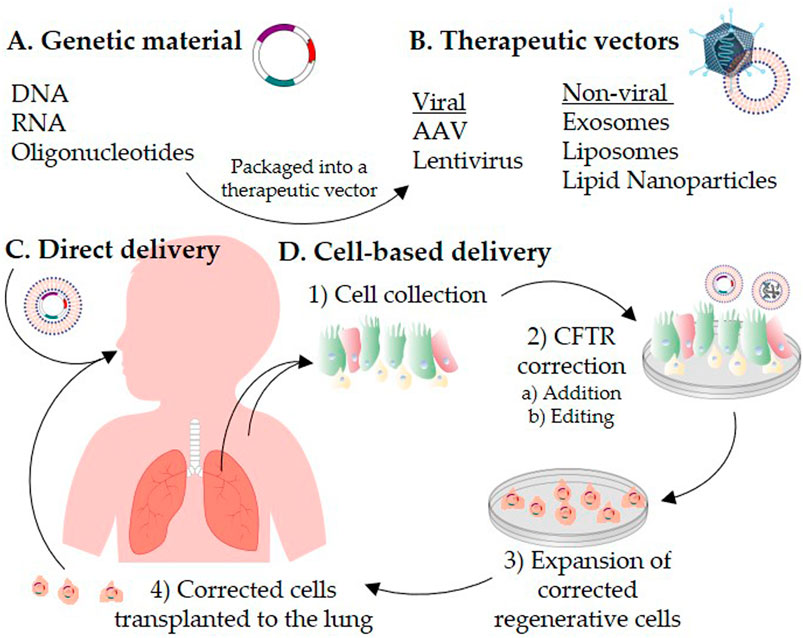Cystic fibrosis, often abbreviated as CF, is a chronic and life-threatening genetic disorder that affects multiple systems in the body. It primarily impacts the respiratory and digestive systems, causing thick mucus buildup that can lead to severe complications. This article delves into the intricacies of cystic fibrosis, exploring its causes, symptoms, and available treatments to provide a comprehensive understanding of this complex condition.

What is Cystic Fibrosis?
Cystic fibrosis is a hereditary disease caused by mutations in a specific gene. The condition disrupts the normal function of epithelial cells, which are responsible for producing mucus, sweat, and digestive enzymes. In people with cystic fibrosis, these secretions become abnormally thick and sticky, leading to blockages in various organs, particularly the lungs and digestive tract.
The Role of Genetics in Cystic Fibrosis
Cystic fibrosis is an autosomal recessive disorder, meaning that a person must inherit two defective copies of the gene—one from each parent—to develop the disease. The gene responsible for cystic fibrosis is known as the cystic fibrosis transmembrane conductance regulator gene. This gene provides instructions for making a protein that regulates the movement of salt and water in and out of cells. When this protein malfunctions, it results in the production of thick mucus that clogs airways and traps bacteria, leading to frequent infections and inflammation.
Inheritance Patterns
- A person with one defective copy of the gene is considered a carrier and typically does not show symptoms.
- If both parents are carriers, there is a twenty-five percent chance with each pregnancy that their child will have cystic fibrosis.
- About one in every twenty-five people of European descent carries the defective gene, making cystic fibrosis more common in this population.
Symptoms of Cystic Fibrosis
The symptoms of cystic fibrosis vary depending on the severity of the disease and the organs affected. While some individuals experience mild symptoms, others face more severe complications. Below are the most common signs and symptoms associated with cystic fibrosis.
Respiratory Symptoms
The respiratory system is one of the most significantly affected areas in cystic fibrosis. Thick mucus accumulates in the airways, leading to a range of breathing difficulties and increased susceptibility to infections.
- Persistent coughing, often accompanied by phlegm
- Frequent lung infections, such as pneumonia or bronchitis
- Wheezing or shortness of breath
- Nasal polyps, which are small growths in the nose
- Decreased exercise tolerance due to reduced lung function
Digestive Symptoms
The digestive system is also heavily impacted by cystic fibrosis. The thick mucus can block ducts in the pancreas, preventing digestive enzymes from reaching the intestines. This leads to difficulty in breaking down and absorbing nutrients from food.
- Poor weight gain and growth despite a healthy appetite
- Frequent greasy, bulky stools
- Abdominal pain and bloating
- Vitamin deficiencies, particularly vitamins A, D, E, and K
- Diabetes due to damage to the insulin-producing cells in the pancreas
Other Symptoms
Beyond the respiratory and digestive systems, cystic fibrosis can affect other parts of the body, including the reproductive system and sweat glands.
- Infertility in males due to the absence or blockage of the vas deferens
- Increased salt content in sweat, which can lead to dehydration and electrolyte imbalances
- Joint pain and arthritis-like symptoms
- Osteoporosis or thinning of the bones due to poor nutrient absorption
Complications of Cystic Fibrosis
Living with cystic fibrosis often means managing a wide range of complications that arise from the disease. These complications can significantly impact quality of life and require ongoing medical attention.
Respiratory Complications
Chronic lung infections are one of the most serious complications of cystic fibrosis. Over time, repeated infections and inflammation can cause permanent damage to the lungs, leading to conditions such as bronchiectasis and respiratory failure.
Digestive Complications
Malnutrition is a common issue for individuals with cystic fibrosis due to impaired digestion and nutrient absorption. Additionally, the risk of developing diabetes increases as the pancreas becomes progressively damaged.
Liver and Gallbladder Issues
The thick mucus can also affect the liver and gallbladder, leading to conditions such as cirrhosis or gallstones. These complications may require surgical intervention or specialized treatments.
Treatment Options for Cystic Fibrosis
While there is currently no cure for cystic fibrosis, advancements in medical research have led to a variety of treatments aimed at managing symptoms and improving quality of life. Treatment plans are highly individualized and depend on the severity of the disease and the specific needs of the patient.
Medications
Several types of medications are used to address the symptoms and complications of cystic fibrosis.
- Mucus-thinning drugs: These medications help loosen the thick mucus in the airways, making it easier to cough up.
- Bronchodilators: Inhalers that open up the airways and improve breathing.
- Antibiotics: Used to treat and prevent lung infections, often administered orally, intravenously, or through inhalation.
- Pancreatic enzyme supplements: Taken with meals to aid in digestion and nutrient absorption.
- Vitamins: Supplements to address deficiencies caused by malabsorption.
Airway Clearance Techniques
Airway clearance techniques are essential for removing mucus from the lungs and preventing infections. These techniques are often performed daily and may include:
- Chest physical therapy: Manual clapping on the chest and back to loosen mucus.
- Vest therapy: A vibrating vest that helps shake loose mucus from the airways.
- Breathing exercises: Specific techniques to improve lung function and clear mucus.
Dietary and Lifestyle Changes
A high-calorie, nutrient-rich diet is crucial for individuals with cystic fibrosis to combat malnutrition and support overall health. Other lifestyle changes may include:
- Consuming foods rich in fats and proteins to meet increased energy needs.
- Staying hydrated to prevent dehydration caused by salty sweat.
- Engaging in regular exercise to improve lung function and overall fitness.
New and Emerging Therapies
Recent breakthroughs in cystic fibrosis research have led to the development of targeted therapies that address the underlying genetic defect. One such class of drugs, known as modulators, works by correcting the malfunctioning protein produced by the defective gene. These therapies have shown promising results in improving lung function and reducing symptoms for many patients.
Living with Cystic Fibrosis
Managing cystic fibrosis requires a multidisciplinary approach involving healthcare providers, caregivers, and the patient themselves. Regular check-ups, adherence to treatment plans, and a strong support network are essential components of living well with this condition.
The Importance of Early Diagnosis
Early diagnosis of cystic fibrosis allows for timely interventions that can slow the progression of the disease and improve outcomes. Newborn screening programs have made it possible to identify the condition shortly after birth, enabling families to begin treatment early.
Support Systems
Living with cystic fibrosis can be emotionally and physically challenging. Support groups, counseling, and educational resources can provide valuable assistance to patients and their families, helping them navigate the complexities of the disease.
Advances in Research
Ongoing research continues to offer hope for better treatments and, ultimately, a cure for cystic fibrosis. Clinical trials and innovative therapies are paving the way for improved outcomes and enhanced quality of life for those affected by this condition.





